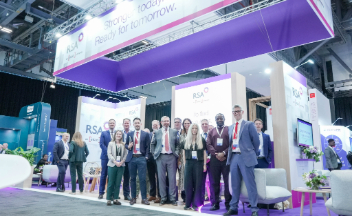£1.1 billion worth of fraudulent claims were detected in 2023, up 4% on 2022. The latest findings from the Association of British Insurers (ABI) may come as no surprise given the squeeze of the cost-of-living crisis.
In total, 4,400 fraudulent claims were detected in 2023, a 16% year-on-year rise. That’s as many as 230 fraudulent insurance claims a day, with an average value of £13,000.
It’s too early for 2024 figures to be released, but given headlines in recent months, it’s safe to assume we may well see another uptick.
Not just a personal problem
While insurance fraud is often talked about from a personal lines perspective - whether it be cash for crash scams or ghost-broking – it poses a very real challenge for commercial insurers too. The ABI’s 2023 review pointed to a number of cases, including one which involved 10 people being arrested and 18 vehicles seized during a two-week police operation.
Police also targeted people making fraudulent claims on:
- motor and business premises insurance
- ghost brokers selling fake motor insurance policies for vehicles used for business purposes
- fraudulent claims made by employees on their corporate benefit plans
And it’s not just insurers who feel the impact of commercial fraud. At RSA, we understand just how time consuming and costly it can be for brokers to deal with. This is why we’re committed to working together to identify potential fraud cases as early as possible.
Common types of commercial insurance fraud
There are a different types of commercial insurance fraud, some of which can be incredibly difficult to identify early enough to prevent. However, other forms can be identified before the business has been put at risk, if everyone involved knows what red flags to look out for.
Three common types of commercial fraud include:
Incorporating fake companies
This involves masking who is really running a company in order to take out a policy. Alternatively, it could be down to naming a particular business type or operation on documentation to facilitate a false claim. For example, a business could state they are a manufacturing company and then attempt to claim for stolen equipment which never existed. Registering on Companies House can be quite a simple process which most people can easily do - this can make it difficult to tell a fraudulent entity from a real business.
Misleading information about risk levels
Companies can mislead insurers about their primary operations, making them seem less of a risk in order to secure cheaper premiums. Businesses may also misrepresent the number of employees on their payroll or levels of stock to try and keep their insurance premiums down.
Ghost broking
Ghost brokers pose as middlemen for insurers, often offering cover at a cheaper price. Once a customer has signed up, the 'broker' will then either forge insurance documents, falsify the customer's details to get them a cheap policy, or take out a genuine policy but then cancel it. This puts customers at risk of thinking they are insured, only to find out they aren't covered if they do need to claim.


